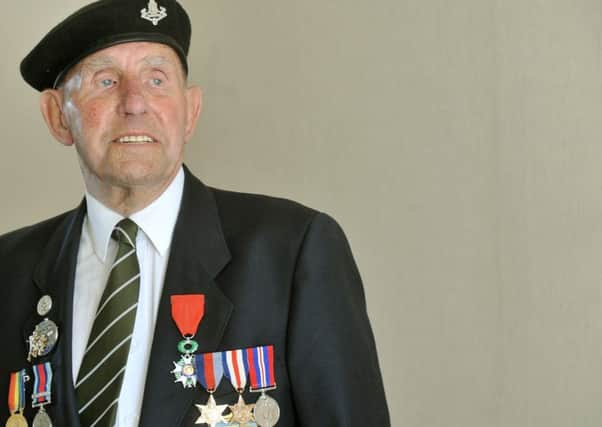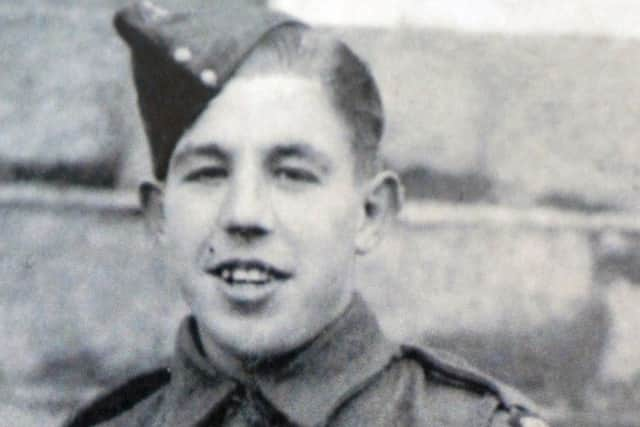York veteran recalls the D-Day landings


As Ken Cooke stepped off his landing craft onto the beach at Normandy on the morning of June 6, 1944, one thought flashed through his mind.
“I know it sounds strange but I wasn’t bothered about the bullets flying around, all I was bothered about was that my socks were wet through,” he says.
Advertisement
Hide AdAdvertisement
Hide AdIt was ten to eight in the morning and Ken was among the second wave of British troops that landed on Gold Beach, part of an armada of vessels carrying more than 129,000 Allied soldiers to France in what was the biggest seaborne invasion in history.


Today, Ken is one of the last surviving members of York’s Normandy veterans and his experiences, along with those of four other comrades, have been retold in a new play written by local writer Helena Fox.
The 92-year-old is part of an ever dwindling band of brothers who fought on D-Day. “There’s not so many of us now,” he says, sitting in his living room. “There were more than 60 D-Day veterans in York when I first joined and now we’re down to just four.”
Ken was just 18 when he was called up for service in December 1943. He left his parents’ home in York and after six weeks initial training joined the Green Howards.
Advertisement
Hide AdAdvertisement
Hide AdHe had no inkling during his training of the daunting task that lay ahead. “We did no training as regards to D-Day. Some people went up to Scotland where the beaches were similar to those in Normandy, but we didn’t have any of that. The only beach I’d been to before was in Skegness where I went as a child with my family.”


Ken’s regiment was sent to an army camp on the South East coast. “There were about 150 of us and we were directed to this officer who had some trestle tables laid out with photographs of the French coast and this was the first time we knew what we’d be doing and where we were going.”
Next they went to Southampton where they boarded an American liberty ship and set off for the Normandy coast. “It was all new to me. It was the first time I’d even been on a boat,” says Ken.
“We settled down and at half past three the bells went off. We went to the mess deck and had Scotch porridge with salt, not sugar, a corned beef sandwich, a cup of tea and a tot of rum. Then we went up on deck, climbed down the scrambling nets and into the assault craft and set off for the beaches.”
Advertisement
Hide AdAdvertisement
Hide AdHe vividly remembers the moments before they landed. “There were rockets and explosions going off and I was just watching it all. I was an 18 year-old and at the time it felt like an adventure. I’d never seen anything like it before.
“We had a good driver on our craft because I only stepped into a foot of water.” Others weren’t so lucky. “The current was very strong and caused the sand to form mounds which meant they thought they’d landed so they dropped the ramp and the men stepped off into ten foot of water. With all their kit they had no chance. The same thing happened with some of the tanks which went straight down,” he says.
“We got off the beach as quickly as possible and went inland. We had to pull back at one point because we’d gone quite far and they were worried we might get cut off. It’s hard to explain but you didn’t have time to be frightened it was only the following day that you started to think about what happened.”
Ken survived that harrowing first day but many didn’t. Although the British lost many men on their beaches, codenamed Sword and Gold, it was the American soldiers at Omaha who bore the brunt of the casualties on the first day.